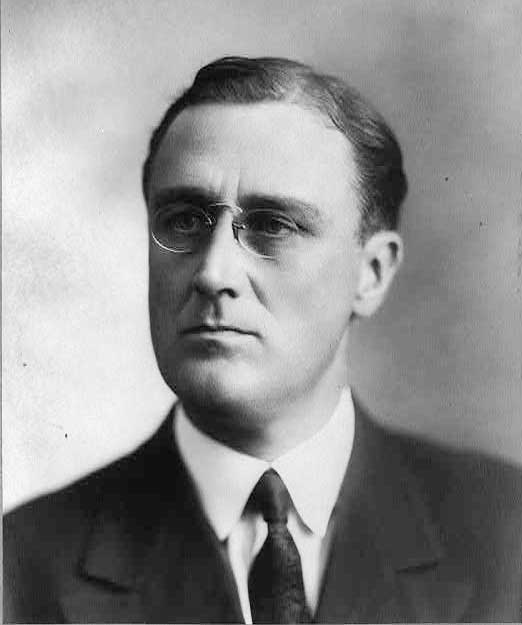Roosevelt as State Senator

FDR in 1911
Upon completing his one-year term as editor of the Harvard Crimson, Franklin decided to pursue a law degree at Columbia University. He did not apply himself much to his studies and after passing his bar exams in his third year, he dropped out of school and began practicing law. Franklin worked for the law firm of Carter Ledyard and Milburn, one of the leading Wall Street firms at the time. Franklin's major interests while clerking for the firm were the small claims cases that he enjoyed trying himself. Franklin soon became restless. In 1910, local democratic leaders in Hyde Park approached Franklin to run for office as a local assemblyman in place of the incumbent who was not expected to seek reelection. When the incumbent decided to remain, Roosevelt decided to actively pursue the office of State Senator. Franklin campaigned actively for the senate seat in a district that was traditionally Republican. Franklin campaigned tiressly, practically shaking hands with every potential voter in his district. His hard work and no doubt his relationship to popular Teddy Roosevelt, paid off. On election night, he won by a margin of 1140 votes.
In January 1911, Roosevelt began his career as a State senator. At the very outset of his term as Senator, Roosevelt found himself in a fight to block the selection by the legislature of Charles Sheehan, a Tammany hall political appointee, to become the US Senator from New York. Roosevelt became one of the leaders of the opposition. Ultimately, he and the other opponents were forced to compromise, but not before Roosevelt established a national reputation as a reformer.
Throughout his career in the Albany Senate, Roosevelt was a strong supporter of government intervention in agriculture. The tragic Triangle Shirtwaist Company fire in New York's garment district motivated Roosevelt to become much more active in supporting legislation to insure workers' rights. By the end of his career in the State senate he was identified as one of the leaders of the party's progressive wing. In 1912, in time for his reelection bid, Franklin came down with a severe case of typhoid that left him bedridden for a month. Louis Howe, a political reporter and sometime political operative, came to his resuce. He ran Franklin's campaign bid and won Roosevelt's reelection while Franklin was bedridden. Soon after the beginning of this new term, Franklin left Albany for Washington to become Assistant Secretary of the Navy.
 >
>